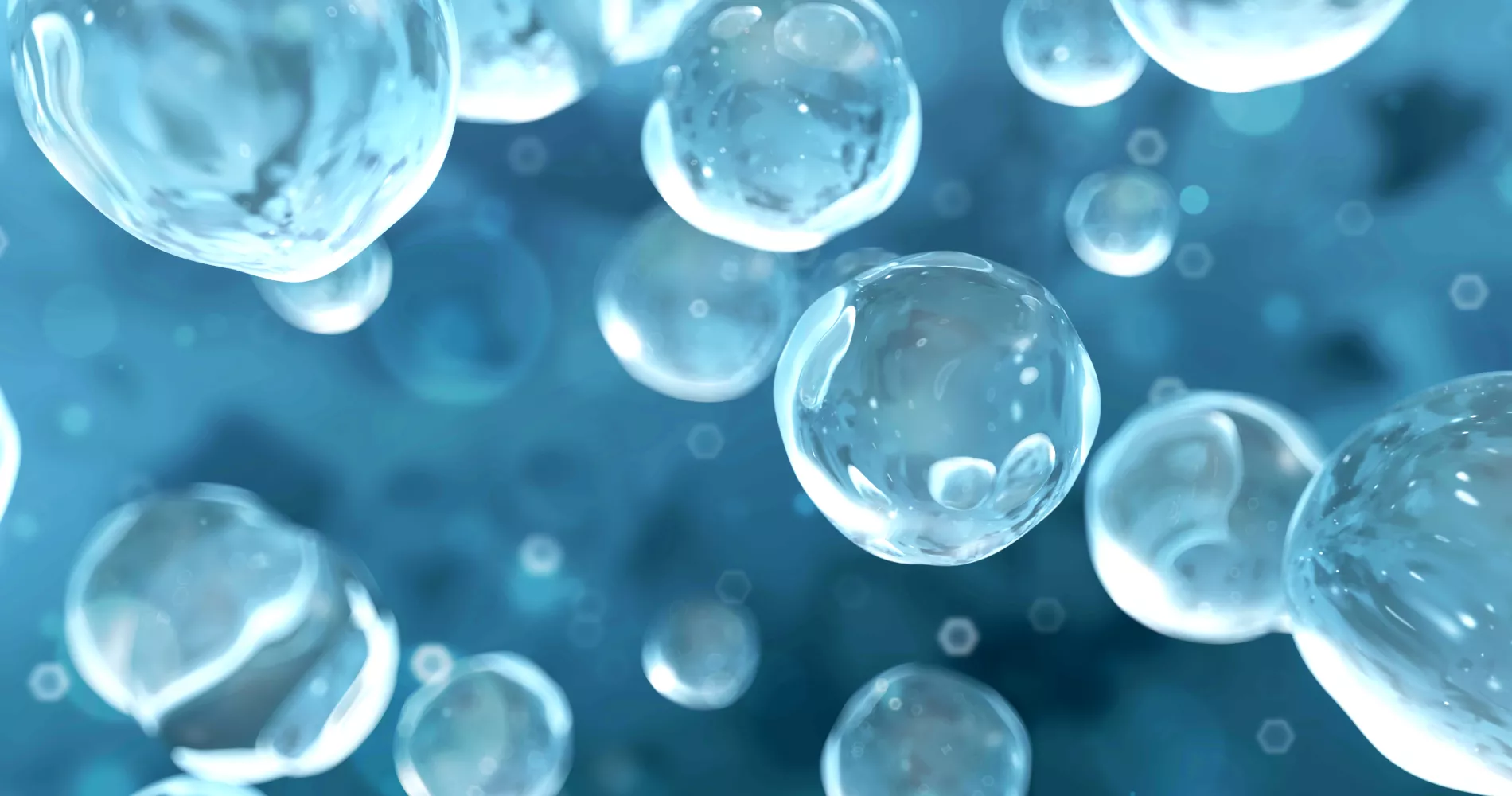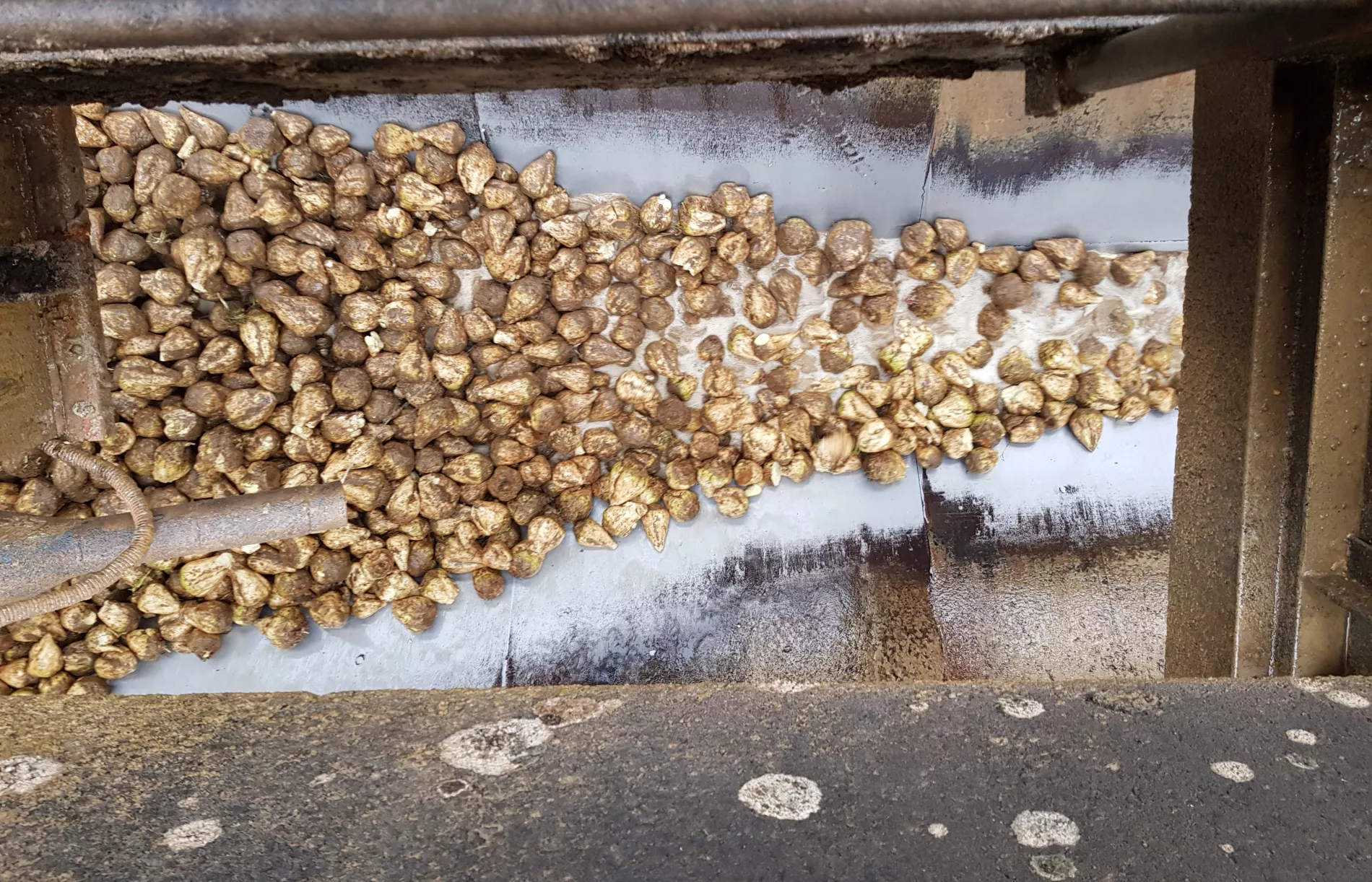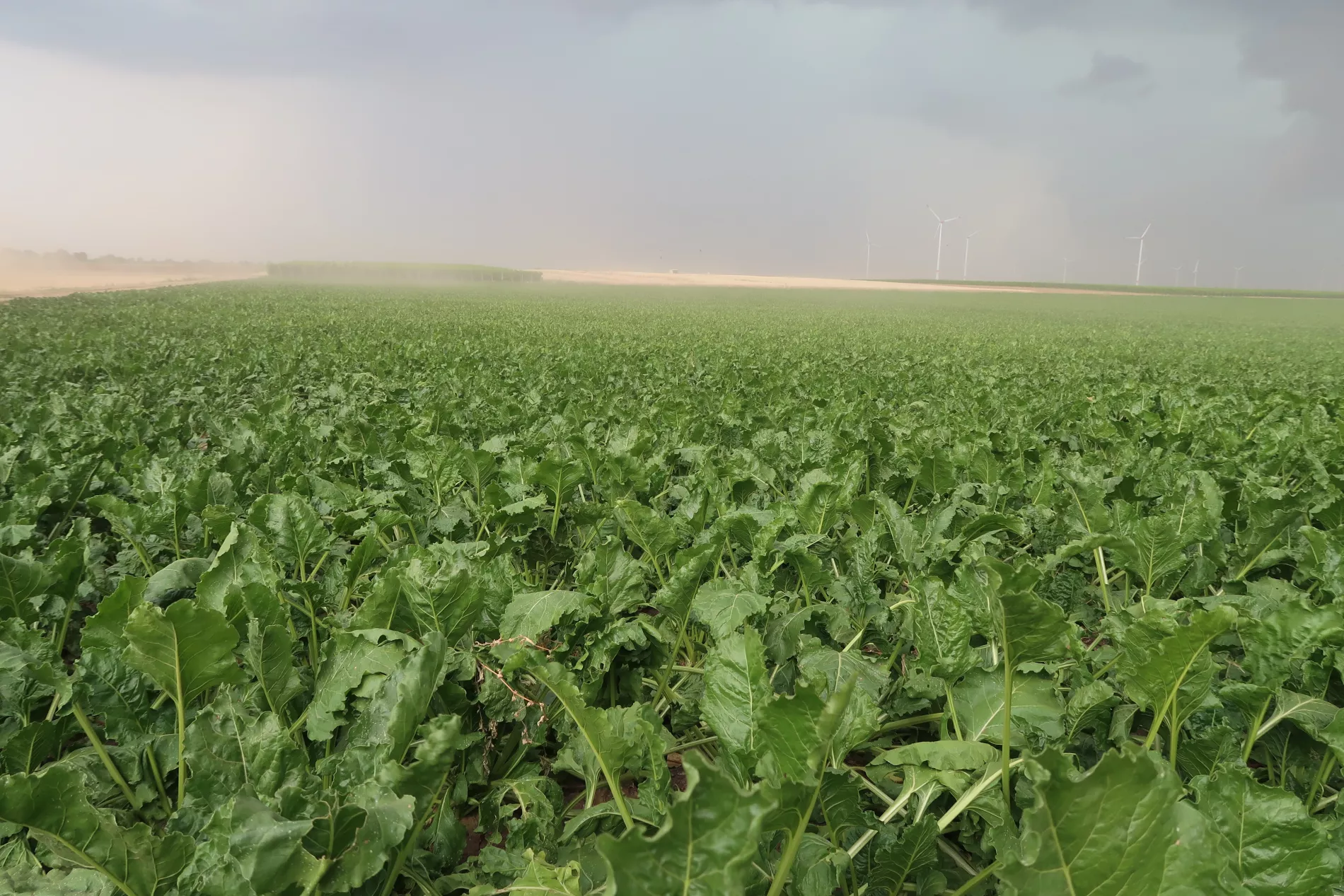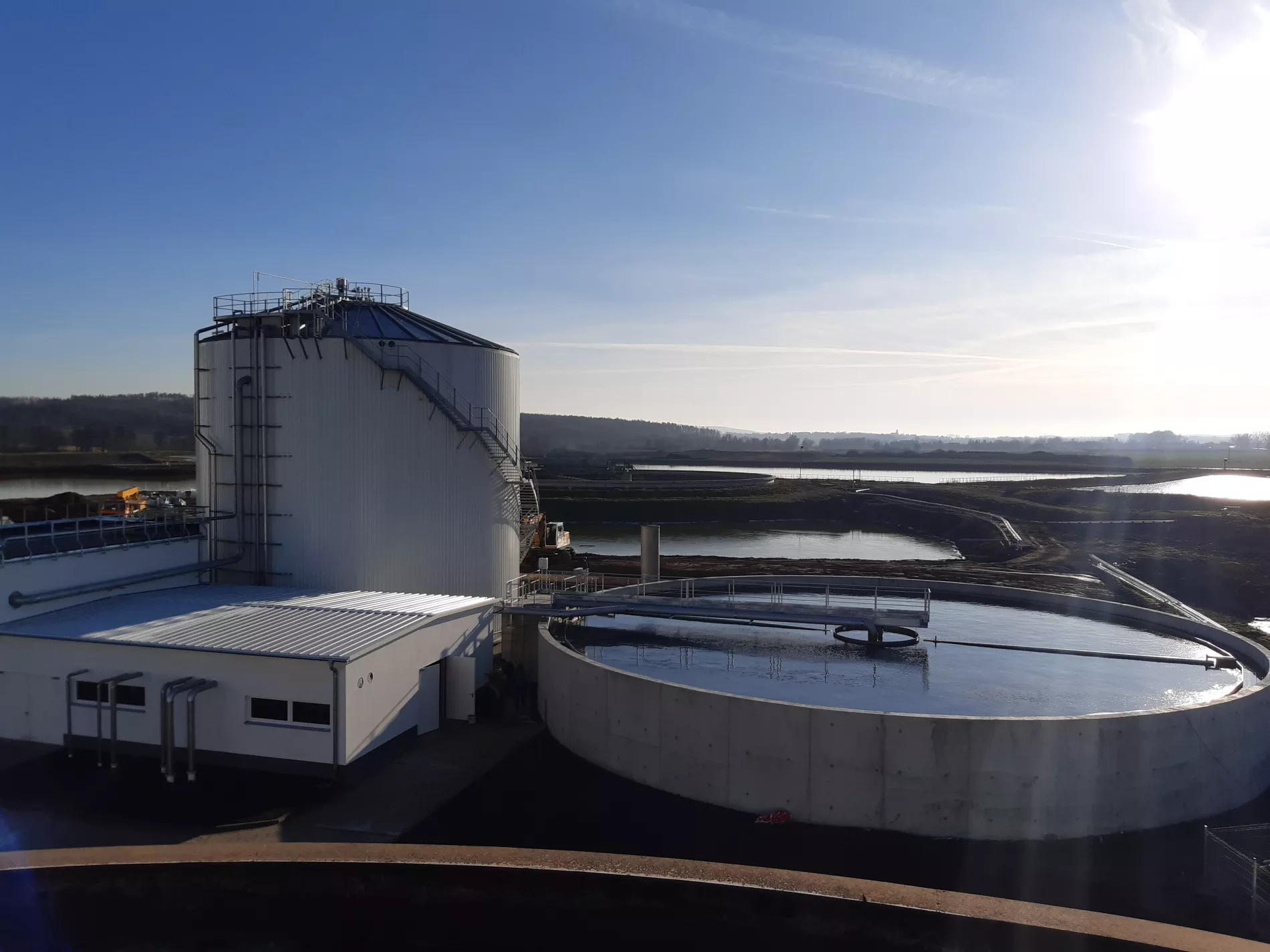
Water
Water, the most important resource globally, is one of many input factors in the production processes of the Südzucker Group. We aim to reduce the freshwater requirements of our factories – especially in areas with water stress – or to switch to alternative sources. Instead of drinking water or groundwater, for example, we use rainwater, river water or wastewater.
We are able to largely cover freshwater requirements at our sugar factories and fruit juice concentration production plants by using the water contained in the raw materials themselves: sugar beets consist of 75 % water and apples about 85 %.
Recycling: multiple use of the valuable resource
About three quarters of the processed sugar beet consists of water. This water is used for unloading the sugar beets, washing them, transporting them through the factory and extracting the sugar from the cossettes.
The water is thus circulated and can be used several times, saving costs and protecting the environment. The water from the raw material sugar beet covers over 95 % of the factories' fresh water requirements (excluding continuous cooling).


Natural rain instead of artificial irrigation
For a high yield, the sugar beet not only needs a nutrient-rich soil, moderate temperatures and plenty of light. Especially in July and August it also needs a lot of water. In agriculture, sugar beet is also known as the "queen of field crops" because it is a very demanding crop.
Südzucker Group's sugar factories are located in the best beet growing areas in Europe, where there is both sufficient sunshine and sufficient natural rainfall. Accordingly, the sugar beet grown for Südzucker mostly is not artificially irrigated. This saves farmers money and protects the groundwater in the growing regions.
Energy from waste water
Südzucker Group operates biological industrial wastewater treatment plants – both aerobic and anaerobic – at numerous production locations. The biogas produced in the anaerobic plants is used to generate energy. The treated water is discharged into neighboring rivers. We deliver excess process water at some locations, which can be used for irrigation or fertilization.
